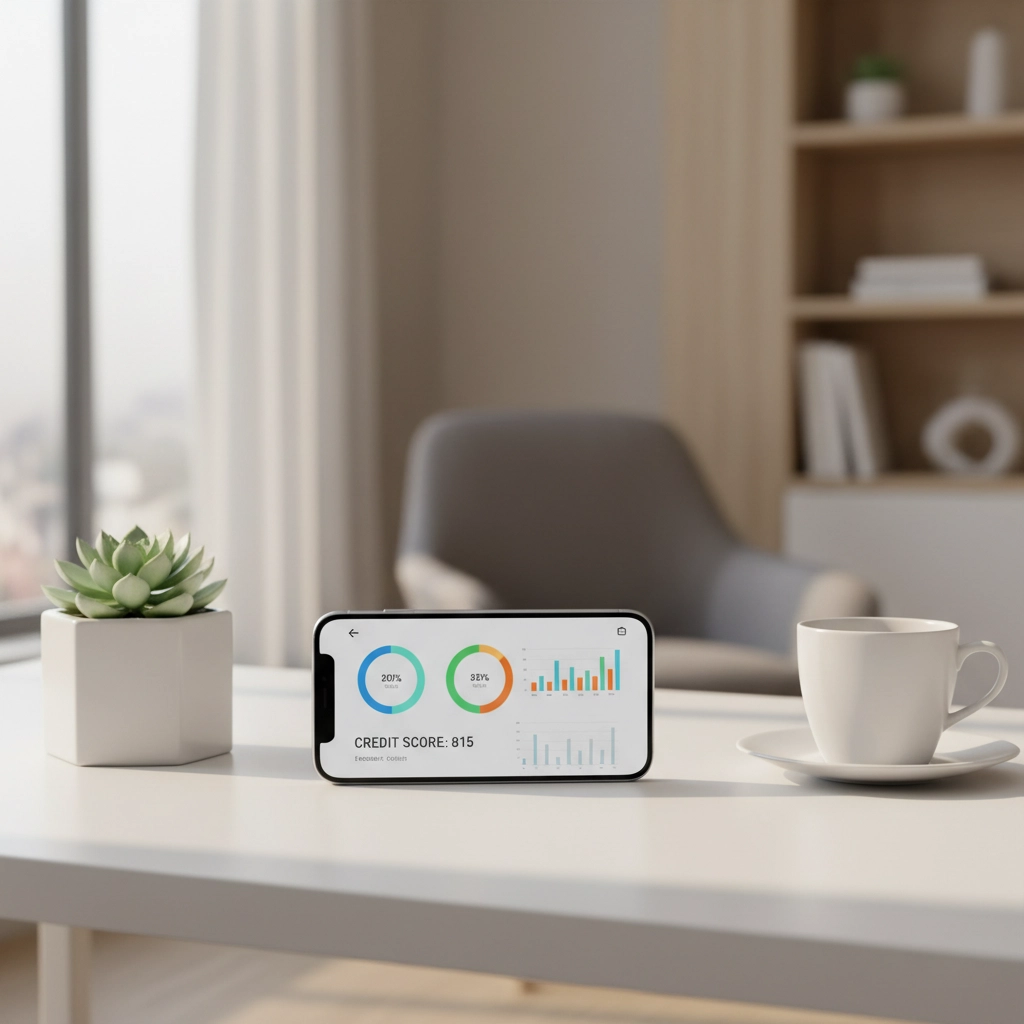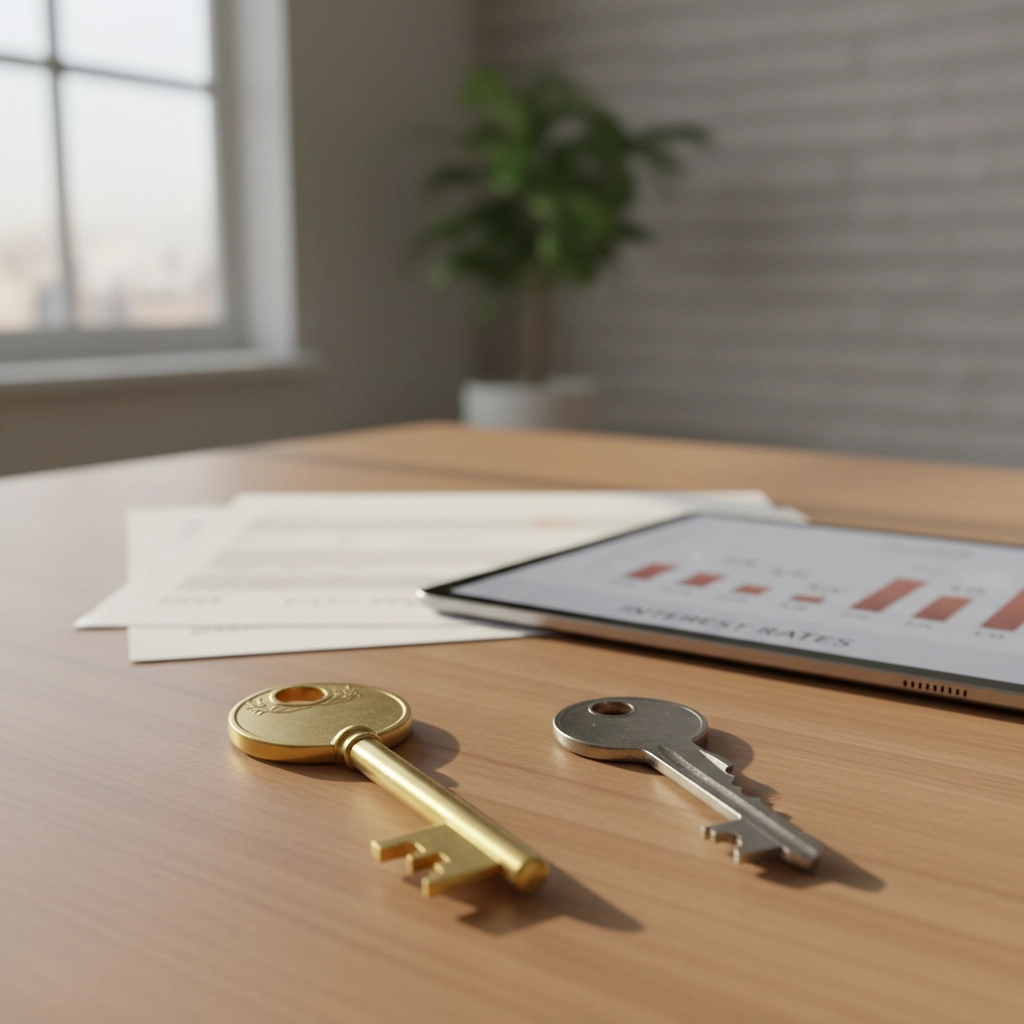Let's be honest, if you bought your home in the last few years when interest…
What Is a FICO Score and How Does It Affect Me Buying a Home?
If you're thinking about buying a home, you've probably heard the term "FICO score" thrown around more times than you can count. But what exactly is it, and why does everyone seem so obsessed with this three-digit number? Let me break it down for you in plain English – no financial jargon, I promise.
What Exactly Is a FICO Score?
Think of your FICO score as your financial report card. It's a number between 300 and 850 that tells lenders how likely you are to pay back money you borrow. FICO stands for Fair Isaac Corporation – the company that created this scoring system about 30 years ago to give lenders a standardized way to evaluate borrowers.
Your FICO score is calculated based on five main factors from your credit reports:
- Payment history (35%) – Do you pay your bills on time?
- Credit utilization (30%) – How much of your available credit are you using?
- Length of credit history (15%) – How long have you had credit accounts?
- Credit mix (10%) – Do you have different types of credit (cards, loans, etc.)?
- New credit (10%) – Have you recently opened new accounts?
Understanding FICO Score Ranges
Here's where those numbers actually mean something in real life:
300-579: Poor
If your score falls here, you're going to have a tough time getting approved for most mortgages. Lenders see you as high-risk, and honestly, most won't even consider your application.
580-669: Fair
You might qualify for some loan programs, but expect to pay higher interest rates and potentially larger down payments. It's like being charged extra for that rental car because you're under 25 – not ideal, but doable.
670-739: Good
Now we're talking! You'll qualify for most mortgage programs and get decent interest rates. You're in the "responsible borrower" category.
740-799: Very Good
You're golden. Lenders love you, and you'll get access to some of the best rates available.
800-850: Exceptional
You're basically the teacher's pet of the credit world. You'll get the absolute best rates and terms available.
How Your FICO Score Affects Your Home Buying Journey
Getting Approved in the First Place
Most mortgage lenders want to see a minimum FICO score of 620-640, though this varies by loan type. Here's the reality check: if you're below 620, you're going to struggle to find a conventional mortgage. It's not impossible, but your options become pretty limited.
For example, let's say you're Sarah, a first-time buyer with a 580 credit score. You might qualify for an FHA loan (which accepts scores as low as 580 with a 3.5% down payment), but forget about that conventional loan with the great rate your friend got.
The Interest Rate Game
This is where your FICO score really shows its power. Even a difference of 50-100 points can save or cost you thousands of dollars over the life of your loan.
Let me paint you a picture: Imagine two buyers, both purchasing a $300,000 home with a 30-year mortgage.
- Buyer A has a 760 credit score and gets a 6.5% interest rate
- Buyer B has a 640 credit score and gets a 7.2% interest rate
That 0.7% difference means Buyer B pays about $125 more per month – that's $45,000 more over 30 years! Suddenly, improving your credit score doesn't seem like such a boring task, right?
Loan Options and Down Payments
Your FICO score also determines which loan programs you can access. Here's a quick breakdown:
- Conventional loans: Usually require 620+ FICO scores
- FHA loans: Accept scores as low as 580 (with 3.5% down) or 500 (with 10% down)
- VA loans: No official minimum, but most lenders want 620+
- USDA loans: Typically require 640+
Higher scores often mean lower down payment requirements and fewer restrictions. It's like having a VIP pass – more doors open for you.
Real-World Scenarios: What This Looks Like
Scenario 1: The Recent Graduate
Meet Mike, fresh out of college with student loans and a 650 credit score. He's been paying his loans on time but has limited credit history. Mike can qualify for an FHA loan but will pay a higher interest rate than someone with excellent credit. His strategy? Keep making payments on time and consider becoming an authorized user on his parents' credit card to boost his score.
Scenario 2: The Credit Card Mistake
Lisa had a great credit score until she maxed out her credit cards during a difficult period. Her score dropped to 590. She can still potentially qualify for an FHA loan, but she'll face higher rates and mortgage insurance premiums. Before applying, she should pay down her balances to improve her utilization ratio.
Scenario 3: The Fresh Start
After a divorce, Tom is rebuilding his credit from scratch. With a 720 score, he has access to most loan programs and competitive rates. He's in the sweet spot where lenders compete for his business.
Beyond the Minimum: Why "Good Enough" Isn't Always Enough
Just because you meet the minimum credit score requirement doesn't mean you'll automatically get approved. Lenders look at your complete financial picture:
- Debt-to-income ratio: How much of your monthly income goes to debt payments?
- Employment history: Do you have steady income?
- Down payment: How much can you put down?
- Savings: Do you have reserves for emergencies?
Think of your FICO score as getting you in the door, but these other factors determine whether you get the loan and at what terms.
Improving Your Score Before You Buy
If your score needs work, don't panic. Here are some moves that can help:
Quick wins (30-60 days):
- Pay down credit card balances to below 30% of limits (ideally under 10%)
- Pay all bills on time
- Don't close old credit cards
- Limit new credit applications
Medium-term strategies (3-6 months):
- Pay off small debts completely
- Become an authorized user on someone else's account with good payment history
- Consider a secured credit card if you have limited credit
Long-term building (6+ months):
- Keep old accounts open to maintain credit history length
- Diversify your credit mix
- Continue making all payments on time
Working with What You Have
Here's the thing – you don't need perfect credit to buy a home. While a higher score obviously helps, there are programs designed for people with less-than-perfect credit. The key is being realistic about your options and working with a knowledgeable loan officer who can guide you to the right program.
At Affinity Group Mortgage, we've helped plenty of buyers navigate the credit score challenge. Sometimes it makes sense to wait and improve your score first. Other times, it's better to buy now with the credit you have, especially if home prices are rising faster than you can improve your score.
The Bottom Line
Your FICO score is incredibly important when buying a home, but it's not the only factor that matters. Understanding how it works gives you the power to improve it and make informed decisions about when to buy.
Remember, buying a home is a marathon, not a sprint. Whether you're ready to start shopping now or need to spend some time boosting that score first, having a clear picture of where you stand puts you in control of your homebuying journey.
If you're ready to explore your options or want to understand how your specific credit situation affects your mortgage choices, get in touch with us. We're here to help you navigate this process without the confusion or stress.







